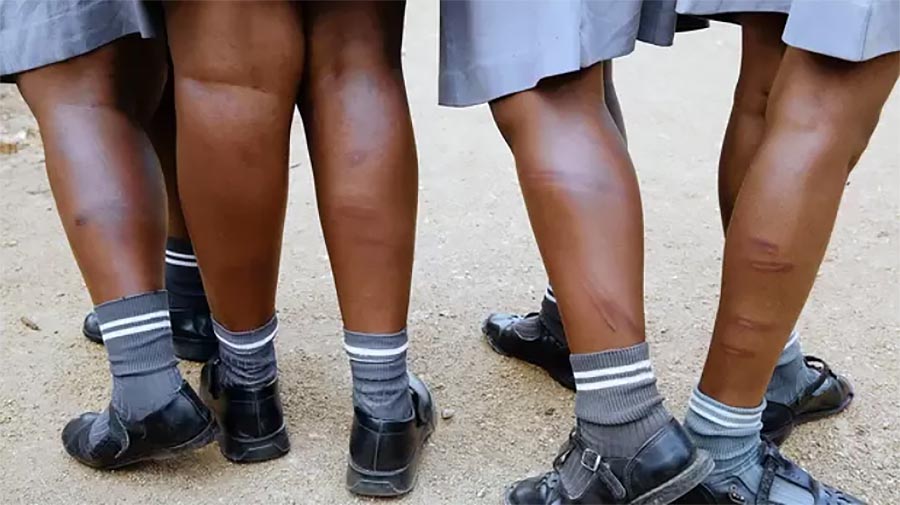HARARE – The Constitutional Court has ruled that judicial corporal punishment is “an inhuman and degrading punishment” whose elimination from the penal system “is an immediate and unqualified obligation on the State.”
In a judgement released on Wednesday, the ConCourt said section 353 of the Criminal Procedure and Evidence Act which authorises the imposition of a sentence of moderate corporal punishment on a male person under the age of 18 years who is in convicted of an offence contravenes section 53 of the Constitution of Zimbabwe adopted in 2013.
The top court was confirming an earlier judgment of the High Court in a case brought by the Justice for Children’s Trust in 2015 on behalf of a 15-year-old boy who was sentenced by a Regional Magistrate’s Court to receive moderate corporal punishment of three strokes with a rattan cane. He had been convicted of rape committed on a girl aged fourteen years.
Harare lawyer Tendai Biti, who argued the matter on behalf of the Justice for Children’s Trust, said the confirmation of the invalidity of the corporal punishment law was “yet another milestone in protecting people’s rights.”
“Section 53 of the Constitution occupies a central place in the scheme of constitutional protection of fundamental human rights and freedoms enshrined in Chapter 4 of the Constitution. The assessment of the purpose of the protection of a fundamental human right or freedom takes into account the values and principles on which a democratic society is based. It is clear from a consideration of the value system underpinning the Constitution that the object and purpose of section 53 of the Constitution is to afford protection to human dignity, and physical and mental integrity, which are some of the most fundamental values,” the ConCourt said in its judgement.
“The right not to be subjected to inhuman or degrading punishment is closely related to the right to respect for human dignity enshrined in section 51 of the Constitution. The section provides that every person has inherent dignity in their private and public life and the right to have that dignity respected and protected. The right not to be subjected to inhuman or degrading punishment is also closely related to the right protected by s 52(a) of the Constitution. The section provides that every person has the right to bodily and psychological integrity, which includes the right to freedom from all forms of violence from public or private sources.
“Section 86(3) of the Constitution makes it clear that both the right not to be subjected to inhuman or degrading punishment and the right to the inherent dignity which must be respected and protected are non-derogable. The section provides that no law may limit these rights and no person may violate them. The rights are not only inherent and inalienable; they are also inviolable.
““The court holds that judicial corporal punishment is, by its nature, intent and effect an inhuman and degrading punishment within the meaning of section 53 of the Constitution. The court also holds in respect of the main question that section 353 of the Act is inconsistent with section 53 of the Constitution. The order of the High Court concerning the constitutional invalidity of section 353 of the Act is confirmed.”
The High Court sent the matter to the ConCourt for confirmation as the latter is the only tribunal with the power to make a final and binding decision on the question of the constitutionality of an Act of Parliament or conduct of the President or Parliament. An order concerning the constitutional invalidity of a law or conduct of the President or Parliament made by another court has no force unless it is confirmed by the Court.
The ConCourt said the declaration of invalidity of section 353 of the Criminal Procedure and Evidence Act [Chapter 9:07] shall take effect from April 3, 2019, which is the date of delivery of its judgment.
“As of that date section 353 of the Criminal Procedure and Evidence Act [Chapter 9:07] is struck down. With effect from April 3, 2019, no male juvenile convicted of any offence shall be sentenced to receive moderate corporal punishment. The prohibition shall apply to sentences to receive moderate corporal punishment that have already been imposed and are awaiting execution.”
















